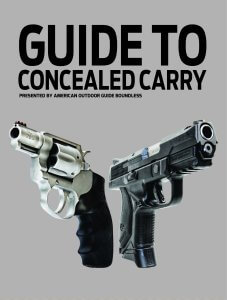It is a normal flight on a small “puddle-jumper” plane between Minneapolis and Grand Rapids. Feeling chatty, you spark up a conversation with the woman across the aisle. The flight is turbulent but nothing you hadn’t been through before.
Suddenly, the oxygen masks drop from the ceiling, and the plane dives into a flat spin. You can barely breathe through the mask, and the gut-wrenching sounds of twisting metal and crunching plastic fill your ears.
The plane is falling from the sky, and you think you have only moments to live. Your eyes lock onto the woman’s across the aisle. Hers are filled with panic as yours fade to black … .
You wake up in the hospital. You survived what happened, but you’re not sure how it was possible. Hours later, you discover that not only is the woman dead, but that you are sole survivor of the crash.
What are you feeling?
“ … carrying around a lot of guilt usually leads to feelings of depression. These feelings can sometimes be so strong as to drive a person to suicide.”
Survivor Guilt
After a near-death experience, most people might feel a great sense of relief. “I’m alive!” they may think. They may even feel a sense of gratitude. They can appreciate and be thankful that they survived. They may feel blessed.
Other people have a very different reaction. They do not feel blessed. They feel cursed; cursed with guilt—more specifically, with what has been labeled “survivor guilt.”
Survivor guilt is considered to be a component of post-traumatic stress disorder (PTSD). PTSD is often found among those who have undergone extremely stressful situations or events, which can include anything that resulted in serious injury, loss, or death. In PTSD, anxiety seems to be the predominant emotion.
But, as the name suggests, guilt is the predominant emotion in survivor guilt. And, of course, carrying around a lot of guilt usually leads to feelings of depression. These feelings can sometimes be so strong as to drive a person to suicide.
When bad things happen to them, some people will ask, “Why me?” Those who survive traumatic events also often ponder the same question.
Some find solace in a religious or spiritual interpretation of what has happened. Indeed, religious and/or spiritual beliefs can be powerful resources in dealing with survivor guilt. Talking to a clergy person can be beneficial. Help is also available from trained mental health professionals.
Don’t be afraid or embarrassed to seek help. We can all use help at one time or another. Trained professionals are there to help—not to judge you.
ABCs of Emotion
To understand survivor guilt, it is first necessary to identify where our emotions come from. What causes us to feel the way we do? Our emotions can be explained by the “ABC” model.
At A, we experience some adversity, such as surviving a traumatic event. At C, there is a consequence, or emotional reaction, such as guilt. Many people believe that their emotion (C) came from the traumatic event (A). They view it as a simple cause and effect: “That happened, so I feel this way.”
Fortunately, they are incorrect. Why “fortunately?” Because if our emotions were simply the result of what happens to us, we would be powerless to control or change them. We would always be victims, helpless in the face of whatever life throws at us.
Fortunately, we are not condemned to be victims; we have a choice. The model also provides a B—our beliefs, or self-talk. It is not the A that creates the C; it is the B. What we believe and tell ourselves about the A determines what emotions we will feel.
In other words: It is not the A of surviving the traumatic event that causes the C of survivor guilt. It is the B—what we believe and tell ourselves about having survived—that determines if we feel survivor guilt or not.
The following real-life case illustrates some of the beliefs that create or contribute to survivor guilt. It also shows how these beliefs can be challenged and changed. The names used are fictitious, but the events are true.
If you have survived a crisis, be proactive in appreciating life. Sitting around, brooding or mentally beating up on yourself, is counterproductive. Not only does it not help, it also makes you feel worse.
Push yourself to be active. Do things for yourself and others. Giving to others or donating your time through volunteer work or other community service can do a lot in reaffirming life and lifting your own spirits. Even just hitting the gym can help. Research has shown that moderate exercise or physical activity can help alleviate some forms of depression.
Asleep at the Wheel—‘Tyranny of the Should’
College student Mary and her friends were coming home from a ski weekend. Mary sat in the back seat. Jane had called “shotgun” and was sitting in the front with the driver. At first, Mary was disappointed but quickly settled into the back seat, curled up with a blanket and her music.
It was late. It was dark. It had been a long day. Mary fell asleep. Tragically, so did the driver. The car went off the road and crashed into some trees. The driver and Jane were killed. Mary survived, relatively uninjured—more accurately, she was uninjured physically but quite injured emotionally.
“If I had called ‘shotgun’ first, I would have been killed instead of Jane,” she said. This was quite probably true. But Mary was feeling a lot of guilt.
“It is very important to separate feelings and thoughts from actions and behaviors. Guilt means you have transgressed in some way.”
She was also telling herself other things that were definitely not true: that she should have called shotgun; she should have been in the front seat; and, worst of all, that she should have known that the driver would fall asleep and she should have made sure the driver stayed awake. Why? Because then, Jane and the driver would still be alive.
Mary felt guilty because she felt responsible for their deaths. Her “should” statements are what psychologists refer to as the “tyranny of the should.” The messages she was giving herself were irrational. That is, they reflected faulty thinking and illogical conclusions. Nonetheless, she believed them and had never stopped to examine whether or not she was unfairly condemning herself by these beliefs. She put herself on trial mentally and found herself guilty without ever considering the evidence of the case she made against herself.
Her beliefs were challenged. The evidence was examined closely. Mary was shown that there was no way she could have known what was going to happen. She didn’t cause the accident nor did she cause Jane to sit in the front seat or the driver to fall asleep.
Mary was helped to understand that what had happened was outside her control, but what she could control was what she told herself about the accident. Declaring herself guilty did not help her or her friends. Indeed, in truth she had done nothing wrong, although she felt as if she had.
Mary was helped to identify and challenge her own thinking. When she changed her self-talk, she changed her emotions. The guilt lessened considerably, and she was able to grieve appropriately. It was a terrible accident, but it was not her fault. She could feel, quite appropriately, a tremendous sadness at the loss, but she did not need to feel guilty about her actions.
When Julian of Norwich (1342–1412) was a young woman, she contracted an illness and almost died. She lived when the plague known as the “Black Death” raged throughout Europe. One-third of the population of Europe died. In Julian’s town of Norwich, England, more than half the population was lost to the plague.
Julian may have experienced what today is called survivor guilt. If she did, she resolved it through her deep religious commitment to helping others. She concluded, “All shall be well, and all shall be well, and all manner of thing shall be well.”
Her words can serve as a reminder that no matter how bleak or bad things seem right now, things will get better.
George Harrison—Self-Preservation
A documentary about the late former Beatle, George Harrison, sheds light on another aspect of how survivors sometimes react.
When singer Roy Orbison died, George Harrison called fellow musician Tom Petty. Harrison asked Petty, “Honestly, aren’t you glad it wasn’t you?”
Some people were shocked by Harrison’s question. Others silently acknowledged that he was right. There is often a sense of “I’m glad it wasn’t me” when a close acquaintance dies. Some people recognize that this is what they really do think and are fine with it. Others tell themselves (their B) they should not think that way. They then feel guilty (their C) for having had that original reaction. They judge themselves as “bad” for thinking the way they do. They feel guilty for having had those thoughts.
Recognizing that self-preservation is a very strong, powerful instinct can help one overcome guilt. Harrison did not wish Orbison would die; he just felt glad he, himself, was still alive. Being less self-critical and self-blaming can help reduce survivor guilt.
Not Guilty!
The thoughts that create survivor guilt can be challenged by simply asking oneself, “Have I done anything wrong?”
It is not a question of “Do I feel like I did something wrong?” but “Did I actually do something wrong?”
It is very important to separate feelings and thoughts from actions and behaviors. Guilt means you have transgressed in some way. You have violated some standard, broken some rule of behavior. If you believe you violated a standard, was it a realistic standard? Or was it more a reflection of the tyranny of the should—that is, some standard that is unrealistic and demands perfection but one that you erroneously believe you should follow?
Survivor guilt is based on faulty thinking. Challenge the faulty thinking. Replace it with correct, more-accurate messages, and the survivor guilt will lessen or disappear completely.
Remember: Good thinking gives good results.
Dr. Thomas J.Nardi is a psychologist in private practice and the director of counseling programs for the Long Island University graduate campuses in Orangeburg and West Point, New York. He is certified in critical incident crisis management.
Editor’s note: A version of this article first appeared in the December 2015 print issue of American Survival Guide.





